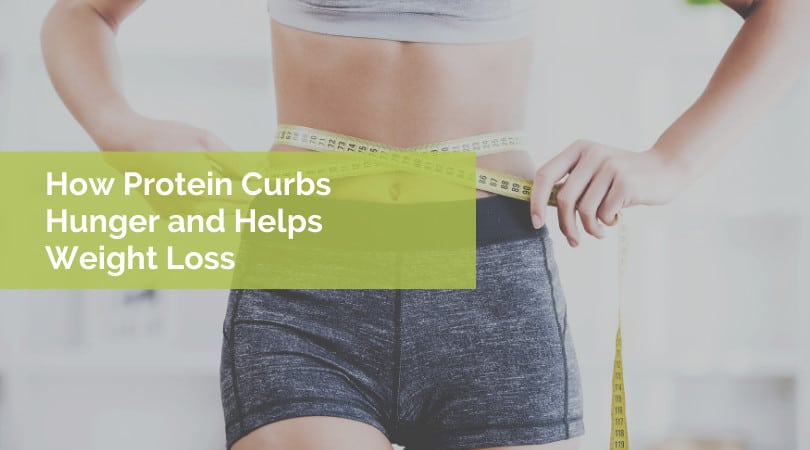
It seems like everywhere you look these days, there’s talk about macronutrients and which one is better. And while fat, protein and carbohydrates each serve important purposes, protein often stands out above the rest. One reason this may be is because of its ability to promote weight loss and help curb hunger. If you want to learn how to curb hunger, understanding how protein works and how much to eat for your goals is key.
What Is Protein?
To understand why protein is one of the best ways to curb hunger, it’s helpful to know what protein is and what it does. Protein is made of amino acids, which serve as the building blocks of the body. These amino acids are essential for health and are an integral part of our immune, muscular and neurological systems. Amino acids also make up the structure of our cells and DNA.
Ways to Curb Hunger with Protein
There are three main ways in which protein can curb hunger and promote weight loss.
First, protein can influence important hunger-related hormones. Our weight is partially regulated by the hypothalamus, a gland located at the base of the brain. In addition to releasing its own hormones, the hypothalamus also receives messages from other hormones, like those released in response to eating.
Hormones such as cholecystokinin, which increase feeling of satiety and reduce feelings of hunger, have been shown to increase with protein intake. Additionally, hormones like ghrelin, which cause increased feelings of hunger, have been shown to be reduced with the consumption of protein. By reducing hormones that promote feelings of hunger, you are likely to eat fewer calories overall.
Second, protein can increase feelings of satiety or fullness. Not only does protein intake help to curb your hunger hormonally, but it can make you feel more satisfied overall and therefore help you to eat less.
A recent study looked at the effect of a high protein drink on appetite compared to a high carbohydrate drink. The subjects that consumed the high protein drinks reported higher feelings of satiety and fewer feelings of hunger when it came time to eat their next meal.
Lastly, protein can boost metabolism. Unfortunately, muscle loss is often an unwanted side effect of dieting or trying to lose weight. However, increasing your protein intake can not only save your lean muscle mass while dieting, but can also help to increase your muscle mass. This increase in muscle will boost your metabolism, burning more energy overall. When paired with exercise, a high protein diet can increase metabolism further and promote more weight loss.
How Much Protein Do You Need?
The dietary reference intake (DRI) for protein is 0.8 grams per kilogram of body weight for adult women and men. On average, this comes out to approximately 55 grams per day for a sedentary man, and 45 grams per day for a sedentary woman.
Another way to calculate your protein needs is based on a percentage of calories. Standard diet guidelines recommend around 10-35% of total calories come from protein. Want to know how to curb hunger and lose weight? Increase your protein past that 10% mark. For weight loss, most studies have shown that a range of 25-30% of overall calories from protein is optimal.
How to Get More Protein
When it comes to protein and weight loss, the key is to increase your protein intake relative to other macronutrients. You can do this by consuming a protein source at every meal and snack. Animal sources of protein include beef, chicken, fish, dairy and eggs. Plant-based options include nuts, seeds, beans and quinoa. Consider a variety of plant and animal-based sources to meet your daily protein requirements.
Are Protein Shakes Good for Weight Loss?
What about shakes? Are protein shakes good for weight loss? Yes, protein shakes are another way to increase your overall intake. Protein shakes are especially beneficial for those who struggle to reach their protein goals. Because they are portable, protein shakes are convenient for those who are busy and find themselves eating on the go.
Bottom Line for How to Curb Hunger
Protein has been shown to curb hunger by regulating hormones, increasing feelings of satiety and supporting lean muscle mass. Increasing the amount of protein you eat, along with exercise, can help you lose weight. Along with eating a protein-rich diet, protein shakes can help you reach your daily protein and weight loss goals.
- Persistent Tiredness and Chronic Fatigue: Causes and Symptoms - February 27, 2024
- Can A Protein Shake Replace A Breakfast Meal? - March 2, 2023
- Glutamine After Surgery: Does It Help With Recovery? - February 17, 2023





